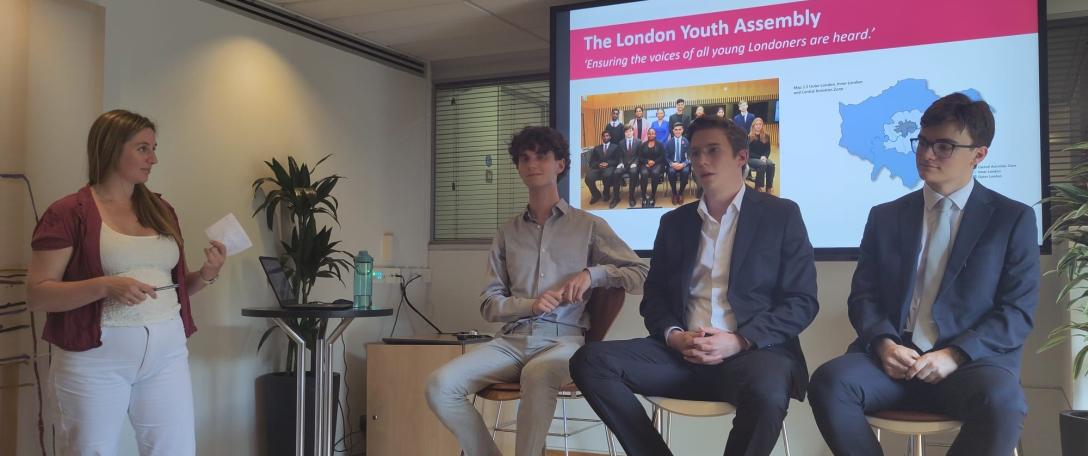By Millie May
At this year’s London Climate Action Week, where over 45,000 participants gathered to accelerate global climate solutions, a standout moment came at the Royal Danish Embassy. There, a dynamic panel of young climate leaders convened to share how they are shaping the future of climate policy, education, business, urban planning, and litigation.
Dr. Amy Munro-Faure, Education and Student Engagement Manager at Cambridge Zero, was invited by the Danish Embassy to moderate the panel. She began the discussion with a powerful reminder of climate change’s toll on the younger generation, stating:
In 2024, 242 million children globally had their education disrupted by the effects of climate change.
Her remarks set the tone for a discussion that underscored the deep and growing impact of climate disruption on younger generations and the urgency of giving them a greater voice. Building on this, Hugo, Chair of the London Youth Assembly, drew on his experience advocating for young Londoners. He called for revising climate education in the UK so that school students can learn about “real-world impacts and practical, actionable solutions.”
From Denmark, Sigurd Krabbe, the nation’s UN Youth Delegate for Climate and Environment, spoke of the importance of institutionalising youth engagement in decision-making processes. He praised Denmark’s Youth Climate Councils as effective models that provide young people with direct access to government ministers and a platform to bring fresh expertise to the table.
The panel did not limit itself to public policy, it also explored the role of youth in the private sector. Cecilia Zade Inseni, Co-Founder and Co-Chair of Gaia, described how youth can influence even the most conservative sectors. She shared how her organisation “inspired and helped Denmark's largest pension fund to launch a youth panel” to channel young voices and advise its CEO.
Meanwhile, Egor Epifanov Fedorenko, President of UCL Green Economy called on green industries to expand access to internships and graduate schemes that help university students develop the green skills essential for a net-zero economy.
Turning to design and infrastructure, Concha Aranda Iglesias, Associate Urban Designer and Planner, shared how regenerative urban design is reshaping post-disaster recovery. Referencing her work in the Hatay region of Turkey after the earthquake, she described how regenerative design involved ‘transforming cities into living systems that contribute positively to the planet and human well-being.’
The discussion also addressed legal and grassroots approaches to climate justice. Tessa Khan, Executive Director of Uplift, highlighted how strategic litigation and public advocacy have helped shift UK government policy away from oil and gas. “We harness public concern about fossil fuels,” she explained, “to make sure politicians understand that people don’t want more oil and gas.”
As the event drew to a close, the atmosphere in the room was one of hope and resolve. The stories shared underscored that young people are not waiting for permission to lead. Across sectors, from policymaking to design, they are already reshaping the climate agenda.
London Climate Action Week reminds us that youth are credible stakeholders with expertise and ambition, driving climate action across sectors.

